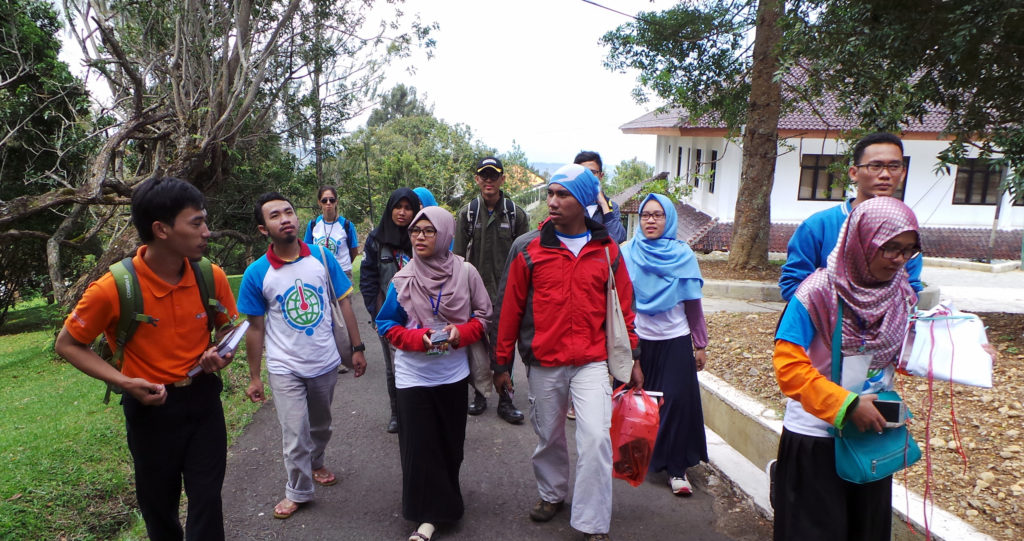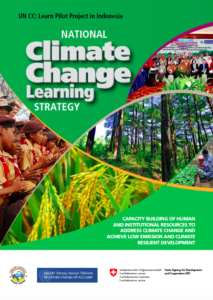Building a National Climate Change Learning Strategy
Following consultation and engagement of key stakeholders, Indonesia’s National Climate Change Learning Strategy was launched in 2013. It focuses on three key areas:
- building personal and institutional capacity to address climate change,
- integrating climate change in the national education system, and
- improving awareness and knowledge about climate change.
The strategy is referenced and included in the policies and programmes of the sectors and institutions participating in the National Action Plan on Climate Change Adaptation (RAN-API) and the National Action Plan on Greenhouse Gas Emission Reduction (RAN-GRK).
The strategy is available in English and can be downloaded below:
Turning the Strategy into Actions
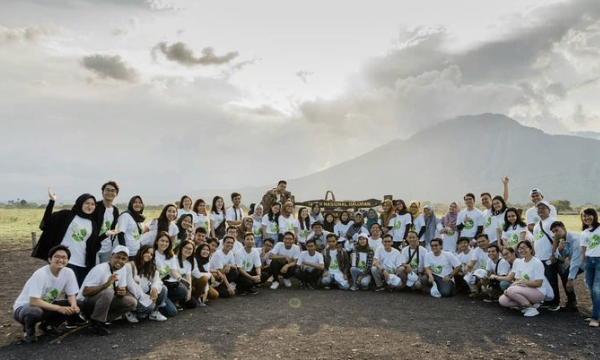
- The National Council on Climate Change (DNPI) in collaboration with the Institute of Technology of Bandung (ITB) organized a workshop on climate change knowledge management bringing together 160 participants from the scientific community, including national research institutions as well as private and national universities.
- DNPI and the Forestry Education and Training Center of the Ministry of Forestry, with the assistance of the Natural Resources Development Center (NRDC) published in 2014 a Training Module on REDD+ for Policy Makers at National and Sub-National Level. The module is available in Bahasa Indonesia and English and was used to deliver training for province and district level officials. The module was integrated into a project led by the German Development Cooperation (GIZ) to extend REDD+ training to district level decision-makers.
- 150 university students took part in the Youth Leadership Camp for Climate Change in February 2017. They learned about climate change, its impact, and how to become actors of change in their communities. After the camps, participants implemented their own climate projects. Three outstanding participants were awarded with a fully sponsored invitation by UN CC:Learn to a “Tribal Climate Camp” (TCC), hosted near Seattle, USA, in August 2017. During this event, the students received more advanced training on climate change and local climate adaptation planning.
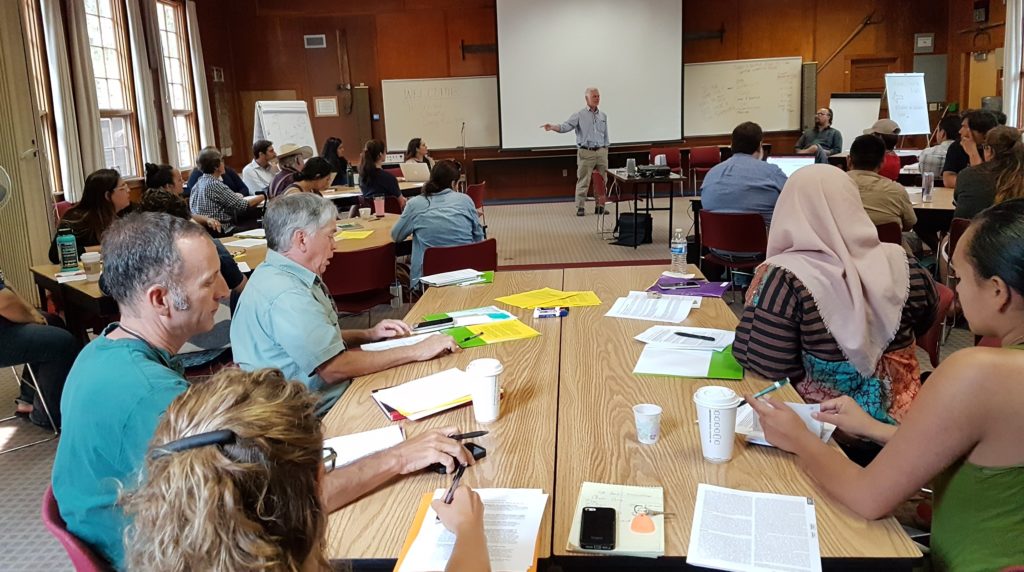
- A second Youth Leadership Camp for Climate Crisis, organized by UNESCO, UN CC:Learn and the Climate Reality Project Indonesia, was held in January 2020. Throughout the three days, 50 Indonesian students and young professionals gathered in the Belambangan UNESCO Biosphere Reserve, in East Java, to increase their understanding of climate change, develop their communication skills and learn how to leverage social media to better disseminate their messages and promote climate solutions.
Our National Partners
Our work in Indonesia is coordinated by the Ministry of Environment and Forestry.
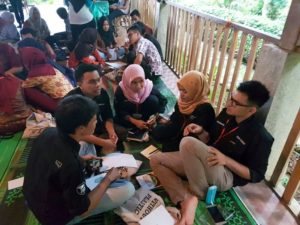
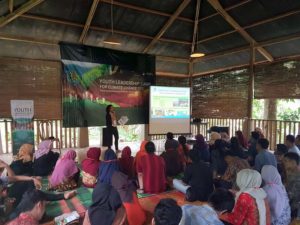
Project News and Activities
Building Climate Change Literacy in Indonesia
9 February 2023 | Indonesia
Youth Leadership Camp for Climate Crisis Equips Youth with the Skills to Spread the Word about Climate Change
18 February 2020 | Indonesia
Indonesia is Making Teachers Part of the Solution to Climate Change
10 April 2019 | Indonesia
Empowering Youth to Lead on Climate Change
06 November 2017 | Indonesia | United States
From Theory to Action: Indonesian Students Learn to Address Climate Change
19 April 2017 | Indonesia
New Youth Leadership Programme Empowers Indonesian Youth to Act on Climate Change
04 February 2017 | West Java, North Sumatra and Lampung, Indonesia

